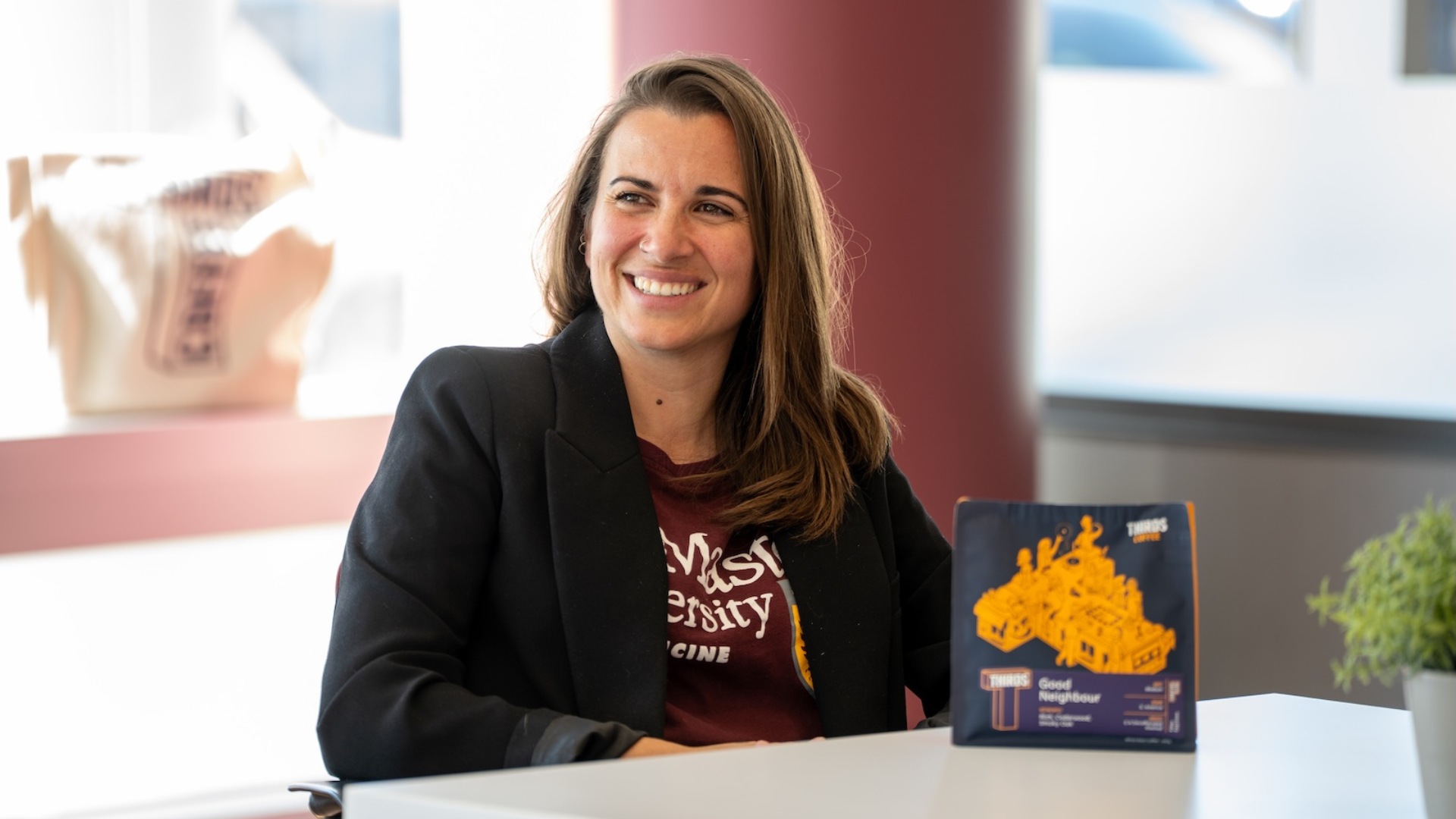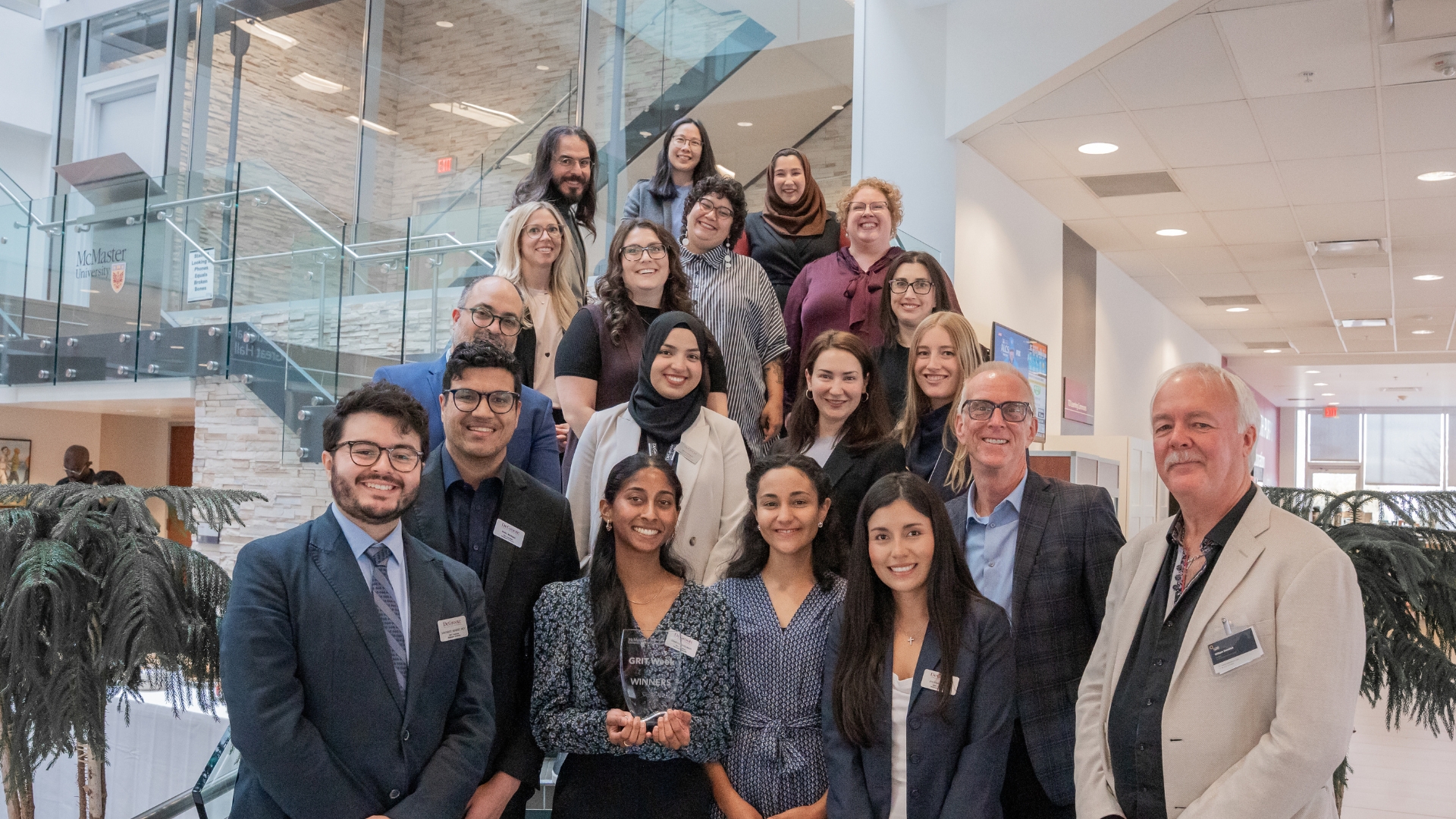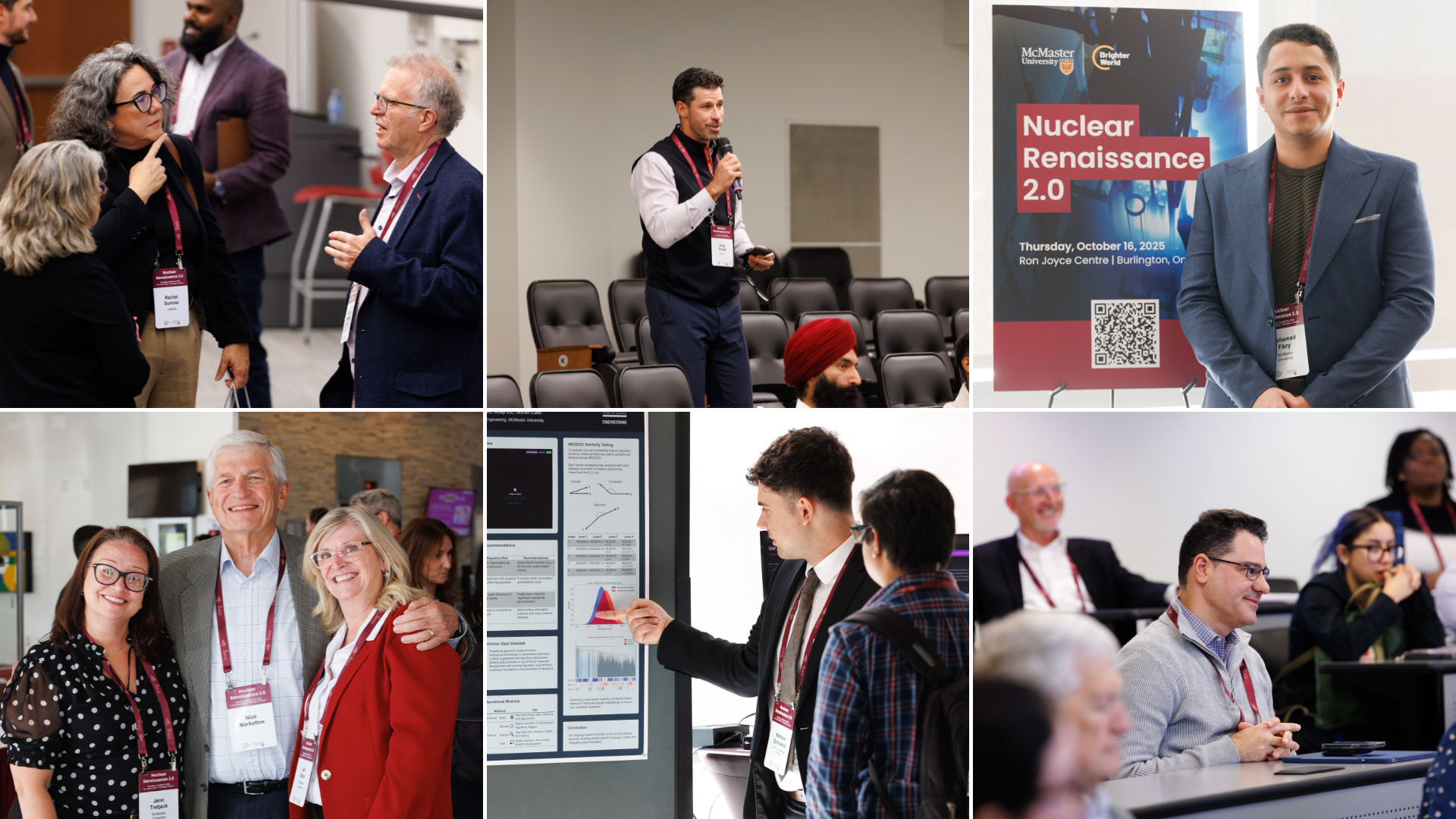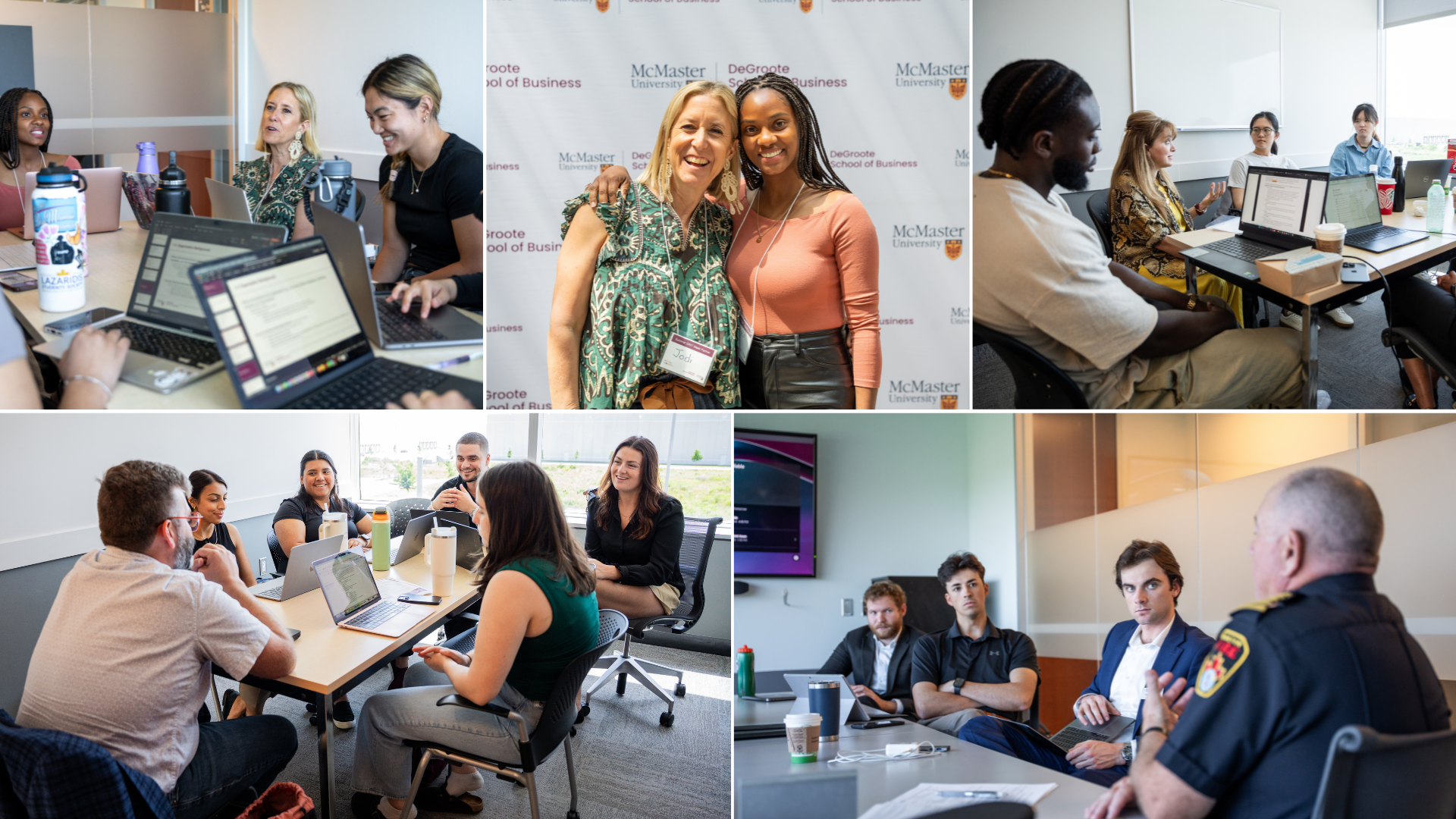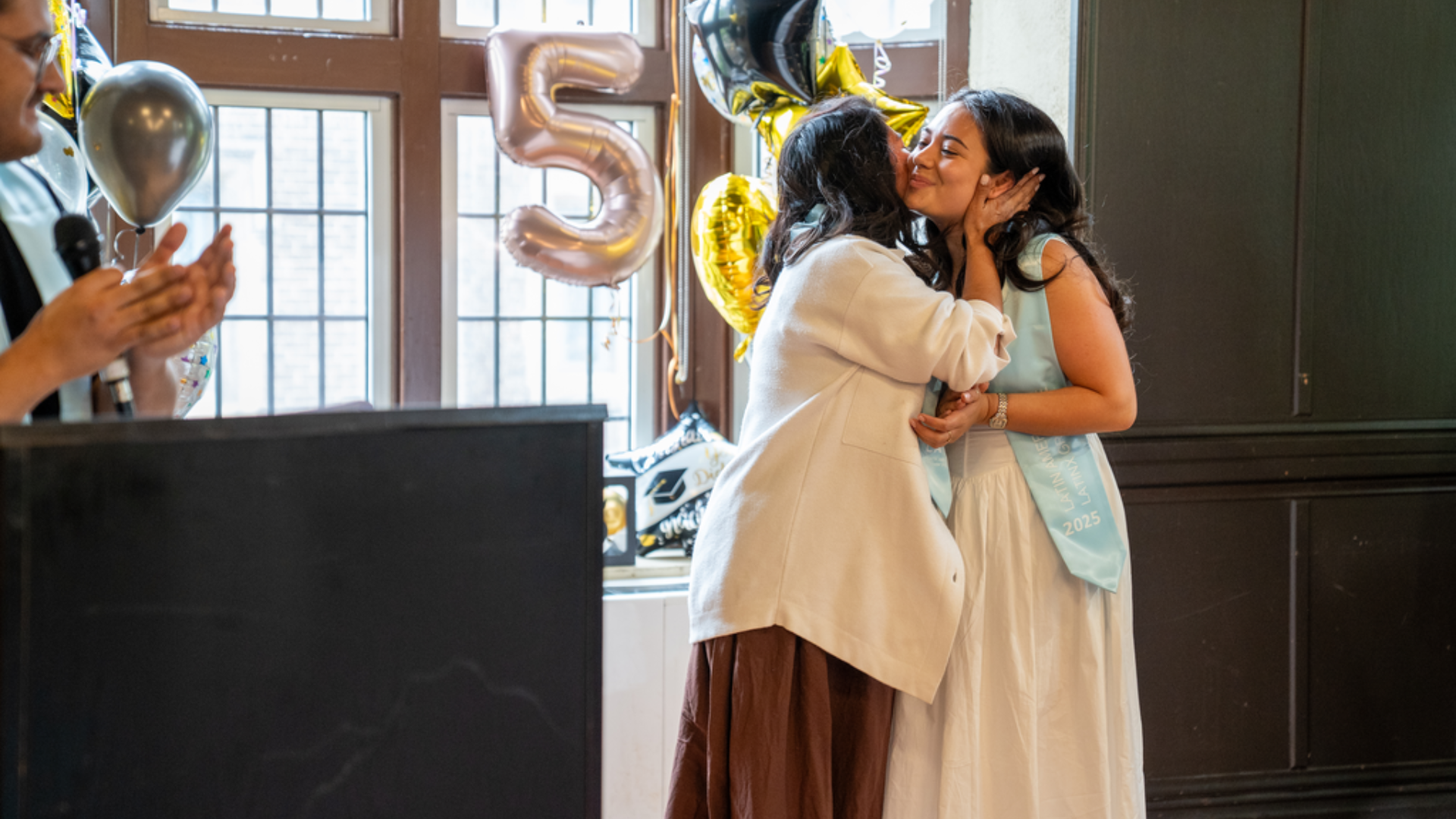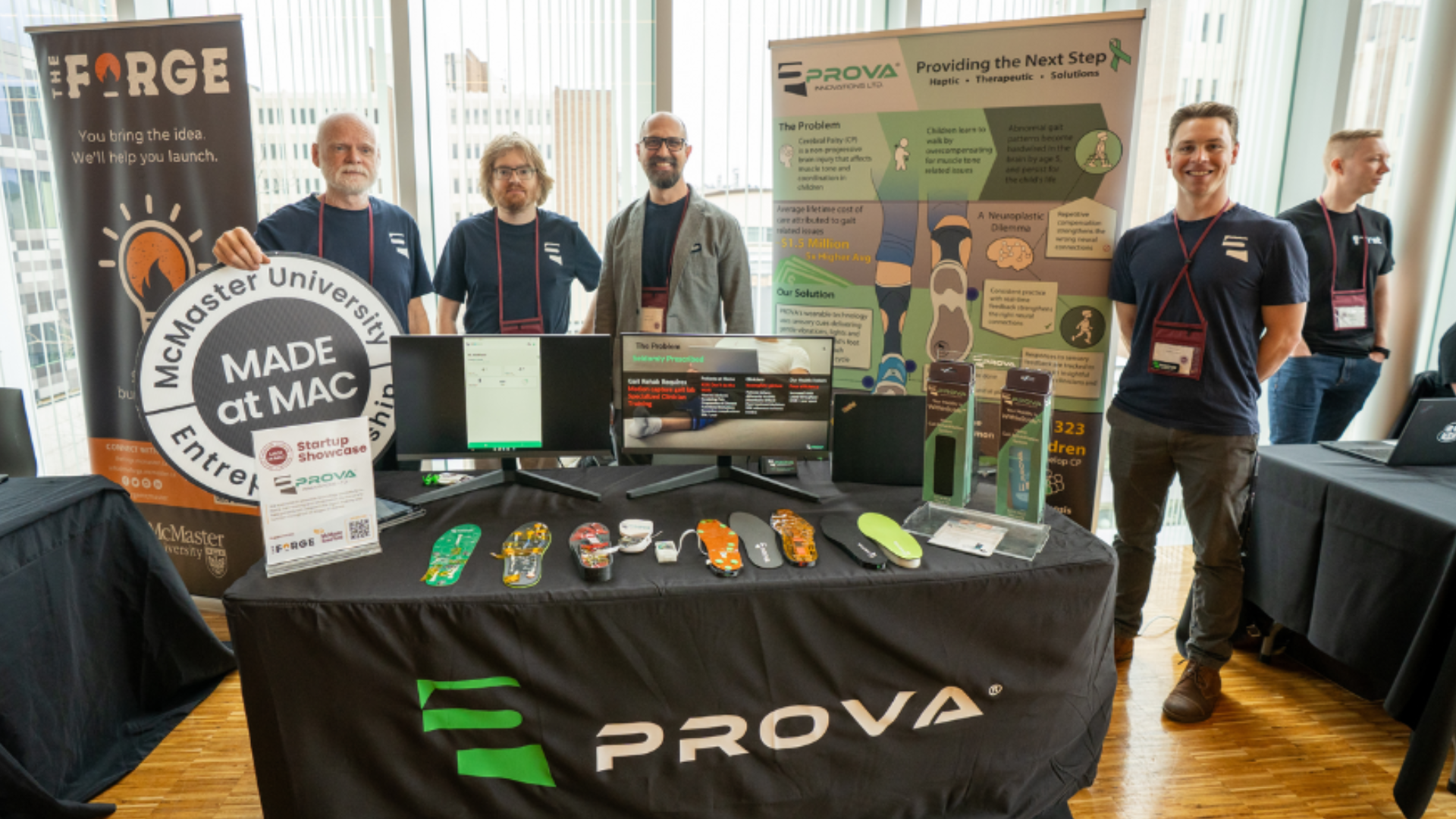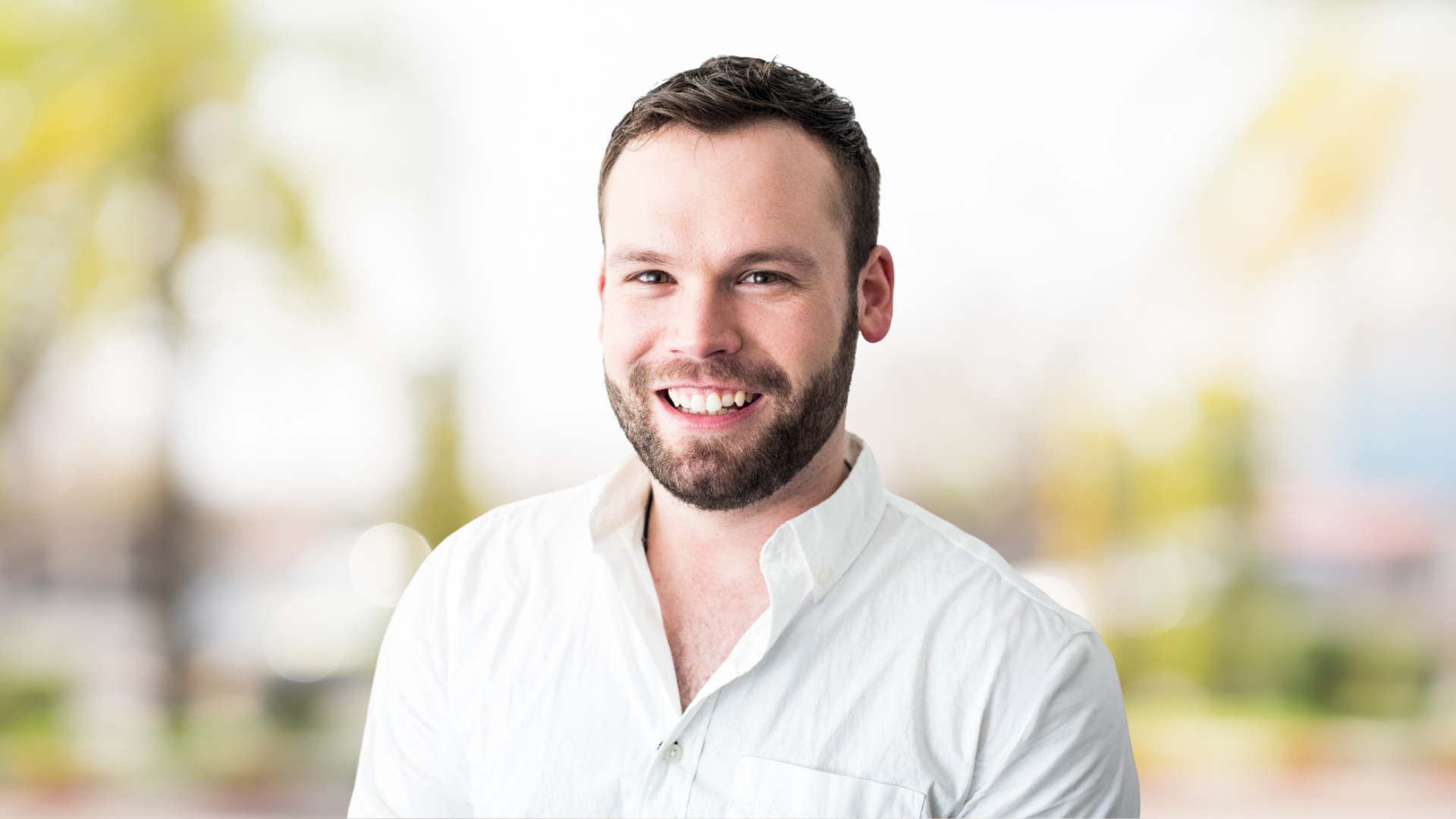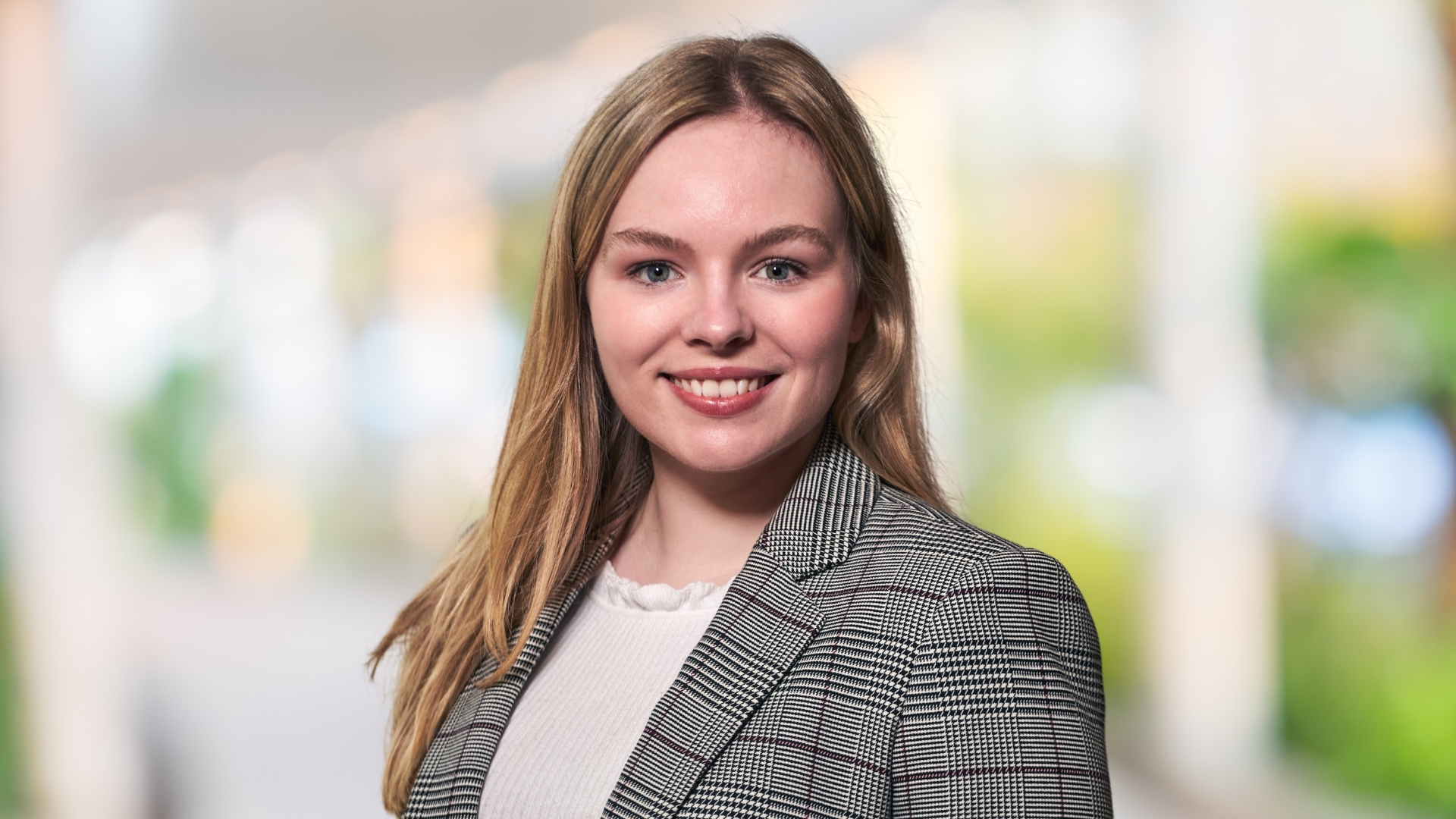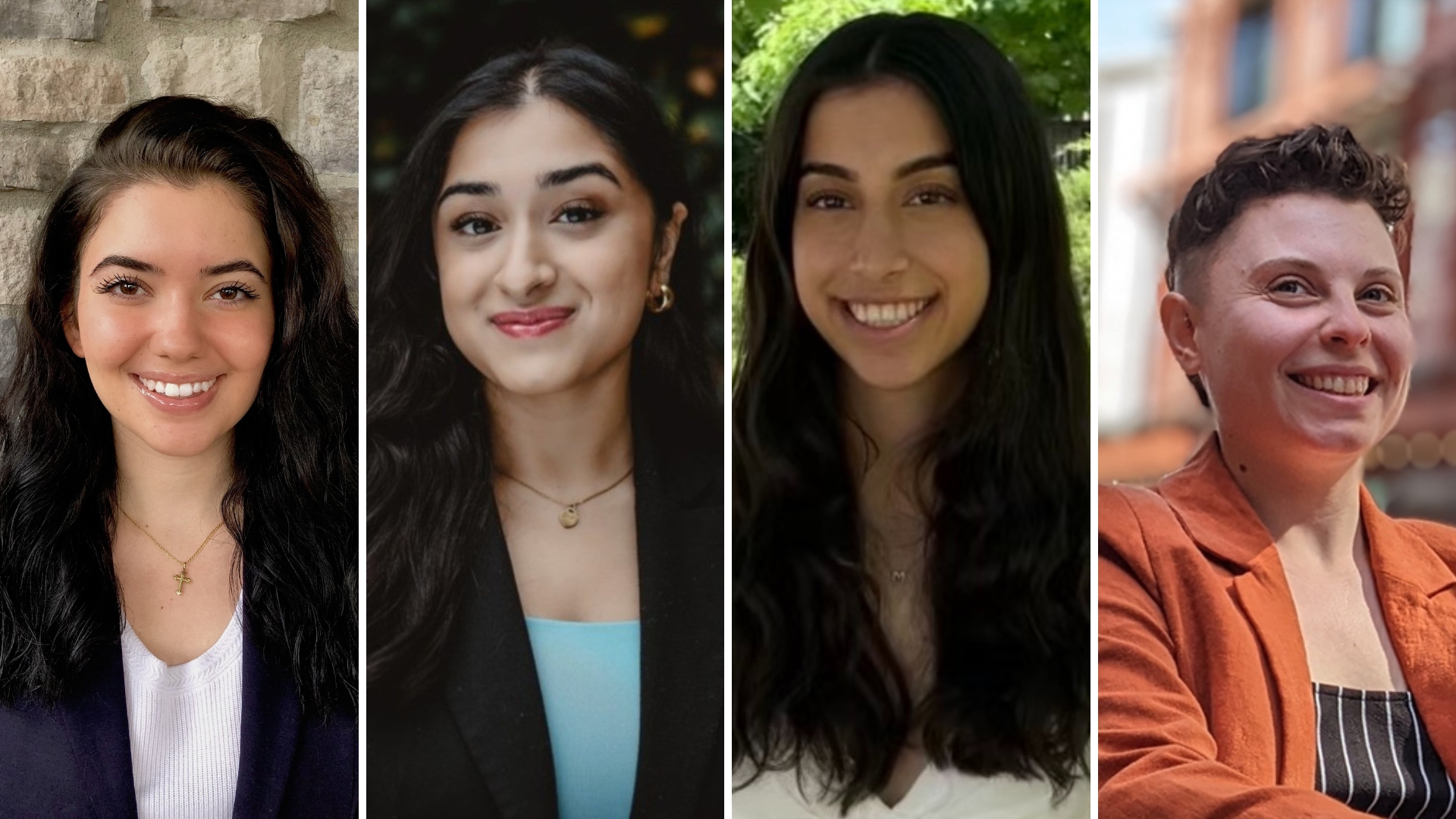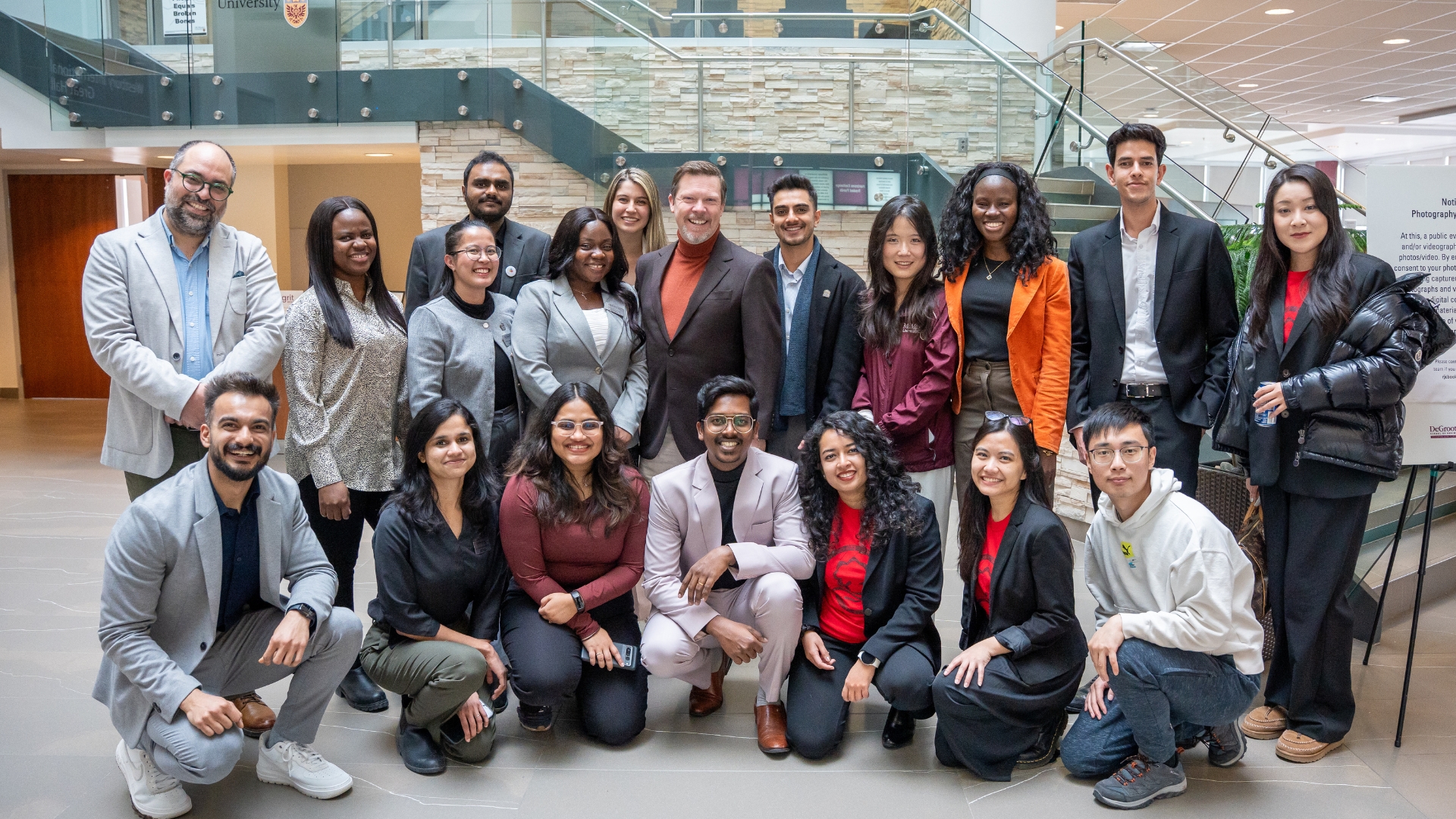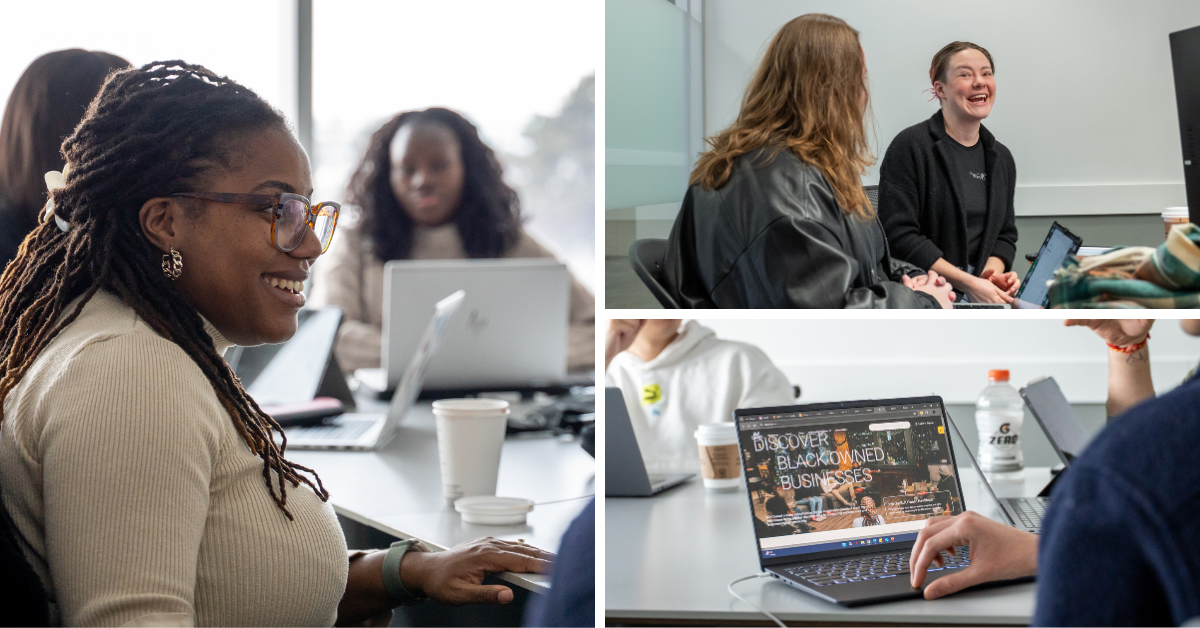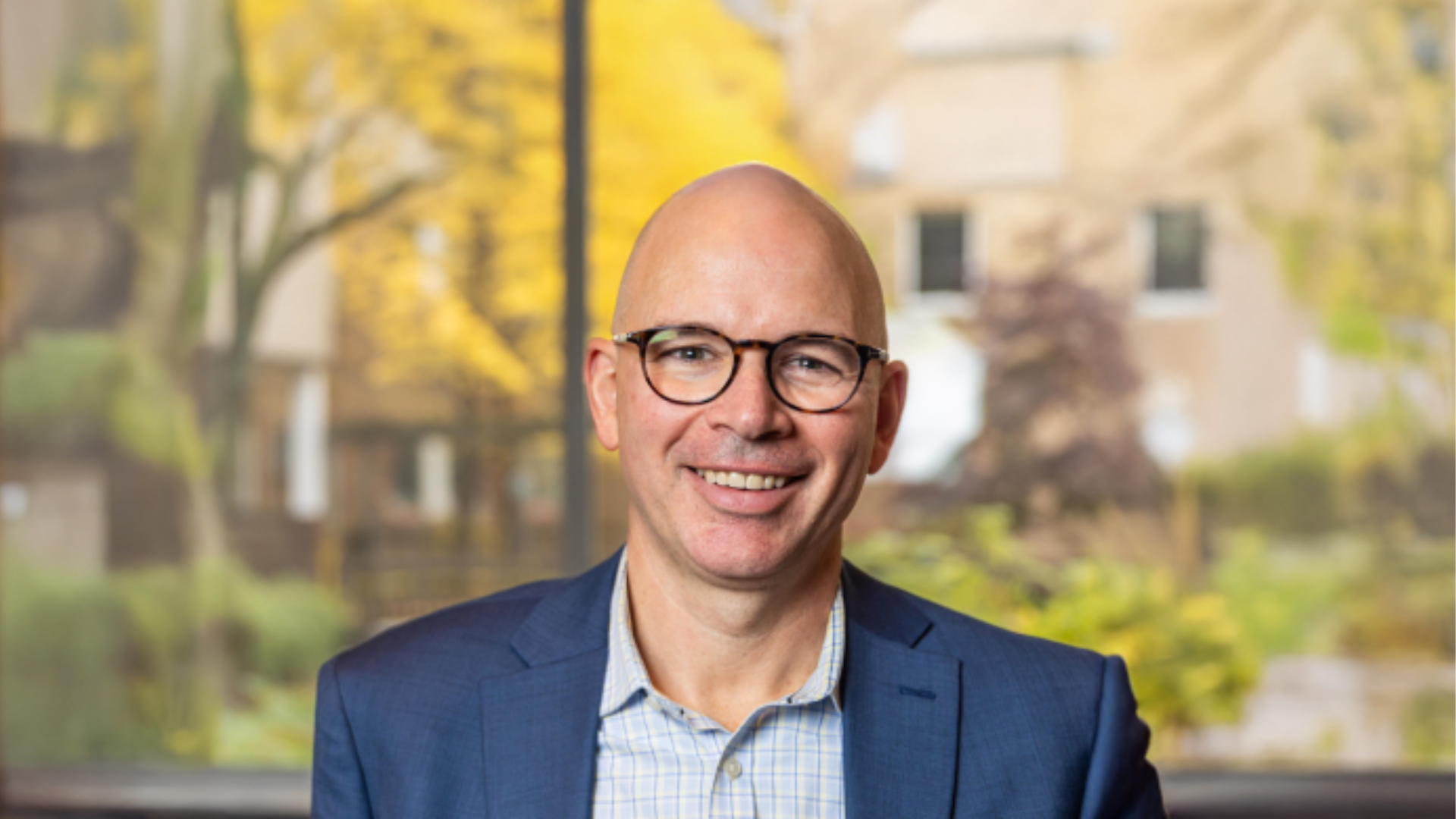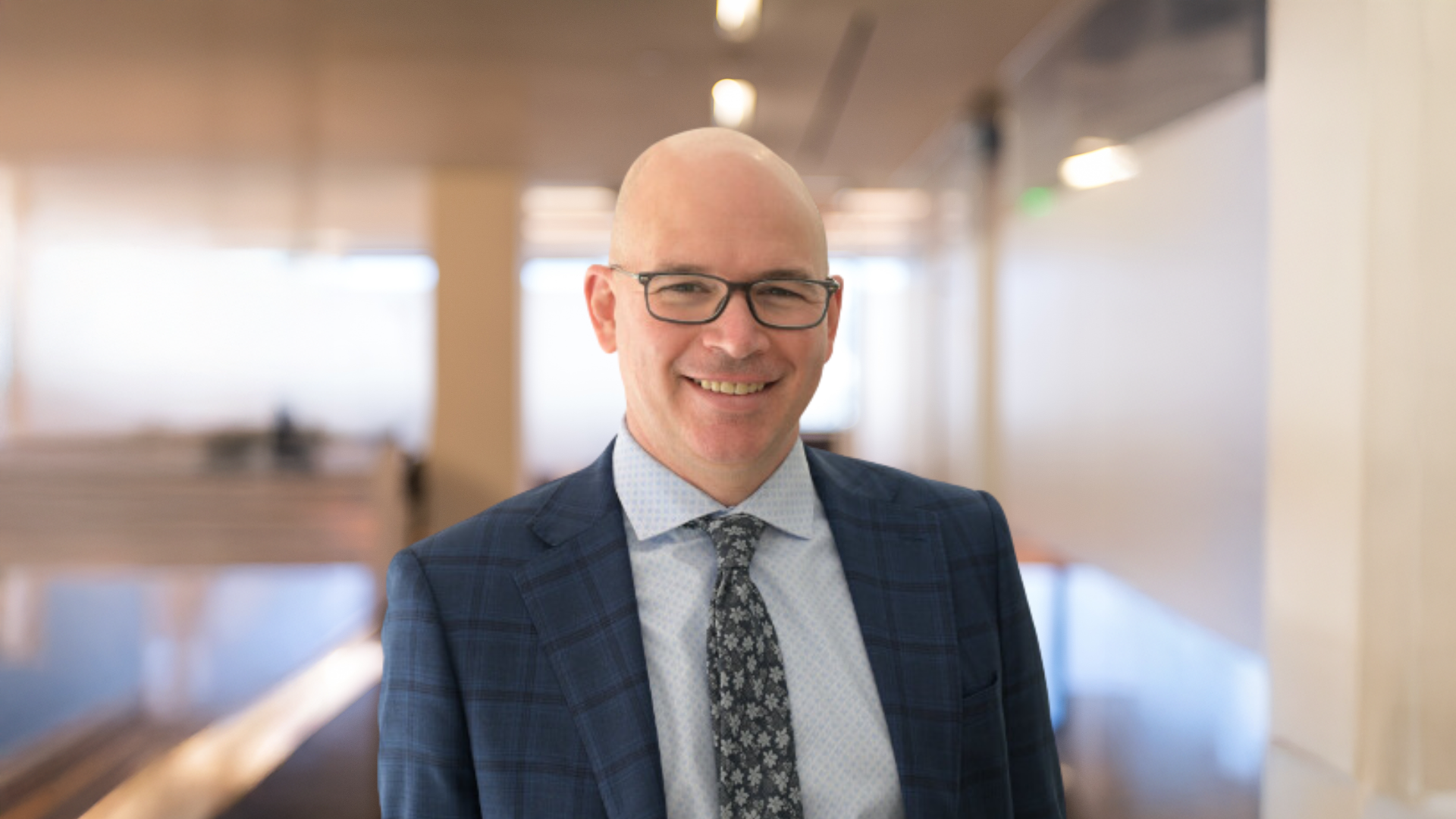STAFF STRATEGIC PLAN | TEACHING AND LEARNING STUDENT
The global impact of DeGroote: MBA candidates use the Clinic to bring McMaster’s research to market
May 10, 2019 ·
Contributed by: Andrew Baulcomb, Communications Officer
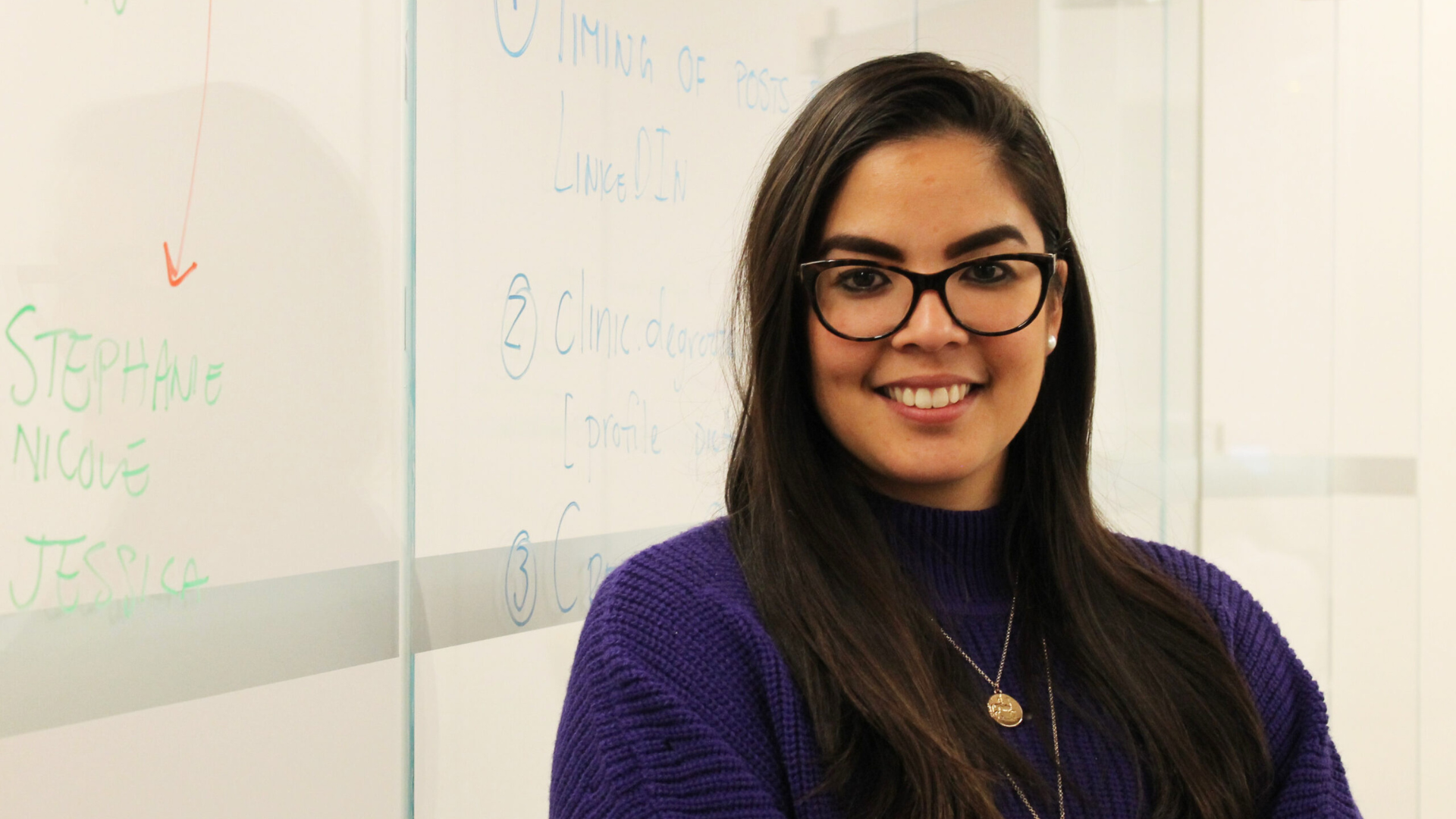
Stephanie Ebreo (above), along with MBA candidates Nicole Verni and Jessica Fares, liaised with Dr. Tapas Mondal to help further his vision of providing worldwide CPR training. “We decided to expand Dr. Mondal’s reach through a global website,” Ebreo says. “The website includes training and education videos, an e-commerce platform to purchase the mannequins, and means to donate to his work.”
Helping pre-term babies breathe. Building a “smart” mannequin for teaching CPR. Creating new opportunities for drug repurposing. Using bacteria to test for gold.
How do researchers take good ideas to market? Since opening in January at the DeGroote School of Business’ Ron Joyce Centre, the Clinic has been doing exactly that.
Overseen by Goran Calic, Assistant Professor, Strategic Management, the Clinic was designed to help with the commercialization of McMaster University’s vast repository of research. It does so by pairing faculty and staff with ambitious, highly-skilled MBA candidates.
“I’ve always longed for a truly hands-on experiential course where you can deliver real value and define success on your own terms,” says DeGroote MBA candidate Farhan Quazi.
He worked alongside McMaster researchers Ravi Selvaganapathy and Christoph Fusch, who are developing a membrane that is 347 per cent more efficient in oxygenating blood. This is crucial for premature babies, who need help breathing effectively.

Quazi was able to connect the researchers with two key stakeholders – the CEO of the only extracorporeal membrane oxygenation (ECMO) manufacturer in Canada, as well as the vice-president of operations at a medical device company. The latter is acting as an advisor on approval procedures.
“The goal was to deliver a tangible outcome that could potentially make a really big difference,” Quazi continues. “I was able to work with real-world innovators and learn as much as I possibly could, while using my experiences and expertise to further their mission.”
Karen Leung joined the Clinic because she wants scientists and researchers to focus their efforts on discovering and creating great things. She worked with former McMaster PhD research fellow Morgan Wyatt – now CEO of Greenlid Envirosciences – on commercializing a new testing method for gold.
By using the bacteria Delftibactin, which binds to gold and expresses itself by turning black, the goal is to create a testing strip that can detect trace amounts of gold from soil and crushed rock samples after treatment from a solution. The method could also be used in electronics recycling and clearing oil sands tailings ponds, Leung explains.
“This has been a great opportunity to meet likeminded, innovative people and work together on an entrepreneurial project,” says Leung, who collaborated with fellow MBA candidate Ryan Baker on the project.
Related: Bright idea factory: The Clinic will tap DeGroote MBA candidates to bring McMaster’s research to market
Stephanie Ebreo agrees on the opportunity front. Ebreo, along with MBA candidates Nicole Verni and Jessica Fares, liaised with Dr. Tapas Mondal to help further his vision of providing worldwide CPR training.
Mondal recently invented sensory feedback technology that, when connected to a CPR mannequin, provides end-users with immediate feedback regarding the rate and depth of their compressions. His initial efforts have been focused in rural communities in India.
“We decided to expand Dr. Mondal’s reach through a global website,” Ebreo says. “The website includes training and education videos, an e-commerce platform to purchase the mannequins, and means to donate to his work.”
Additionally, the student team developed a procurement list that included more cost-effective mannequin options that Mondal could leverage once the project gains momentum.
Like many of her peers, MBA candidate Deanna Betts says she joined the Clinic to show what she has learned in the classroom on a much bigger stage.
Along with fellow students Meaghan Disher-Byles and Abid Syed, she was involved in a project that explored candidate compounds that can be used in novel ways or repurposed for the treatment of respiratory diseases.
Her team looked at how a company could be structured to derive value from this process, as well as different sources of data that could be used. McMaster’s Dr. Jeremy Hirota is the faculty lead on the research.
“I joined the Clinic because it was a great opportunity to apply what I had learned to a real-life scenario, and I knew I would learn new things along the way,” Betts offers. “The Clinic is very unique, and I viewed it as an opportunity to make a real difference.”
Want to learn more about the Clinic? Click here.



